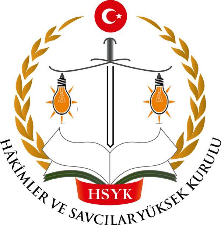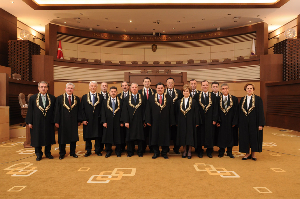Rebalancing the Scales: The Forthcoming HSYK Election
By Gareth Jenkins (vol. 7, no. 16 of the Turkey Analyst)
On October 12, 2014, Turkey’s judges and prosecutors will choose ten members of the Supreme Council of Judges and Prosecutors (HSYK) in an election which is likely to have far-reaching repercussions both for the government’s campaign against followers of the exiled Islamic preacher Fethullah Gülen and the broader issue of political control over the judiciary.

The Balyoz Retrial and the Changing Politics of Turkish Justice
By Gareth Jenkins (vol. 7, no. 12 of the Turkey Analyst)
On June 18, 2014, the Turkish Constitutional Court ordered a retrial in the infamous Balyoz, or “Sledgehammer”, case in which 237 serving and retired military personnel were convicted of plotting to stage a coup to overthrow the government of the Justice and Development Party (AKP). The retrial appears likely to result in the acquittal of the accused. However, the timing of the Constitutional Court’s decision has done little to allay concerns about the politicization of the Turkish judicial system.

After DTP Closure: From Dialogue to Monologue?
By Gareth Jenkins (vol. 2, no. 23 of the Turkey Analyst)
For a party which has frequently expressed its opposition to the closure of political parties, the muted response of the ruling Justice and Development Party (AKP) to the outlawing of the pro-Kurdish Democratic Society Party (DTP) spoke volumes. Few appear to have mourned the banning of a party which in recent months had broadened its support base in southeast Turkey at the AKP’s expense. However, the AKP appears unlikely to be able to exploit the closure of the DTP for its own electoral advantage.
The Power of the Gülen Movement Causes Concern After New Arrests in the Ergenekon Investegation
By Halil M. Karaveli (vol. 2, no. 8 of the Turkey Analyst)
The latest wave of arrests in the Ergenekon coup plot case, targeting secular academics and NGOs, has once again altered perceptions of the investigation. It has become more difficult to interpret the investigation as exclusively concerned with bringing coup plotters to justice. Representatives of the AKP itself were dismayed by the turn taken by the investigation. Attention is now focused on the Fethullah Gülen movement, which is accused of masterminding an operation directed at its secular challengers in civil society, acting on its own and by-passing the AKP.
The Season of the AKP's Disorientation
By Haluk Sahin (vol. 1, no. 18 of the Turkey Analyst)
Turkey is moving towards local elections in March of 2009 in a state of disorientation and flux. The ideological deck of Turkish politics is once again about to be reshuffled. The ruling AKP’s room for political maneuver is seriously curtailed, which creates new opportunities for the opposition parties.




